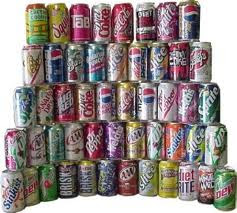Dr William Davis recommends this simple bit of kit (for example):
The simplest way is to check your blood sugar before food and then check it one hour after eating. The aim is to maintain a healthy level of 100 mg/dl or less (5.5 mmol/L) before and after food.
Youtube has several videos showing how to take blood for the test:
Jenny Ruhl runs a website dedicated to sharing accurate information about blood sugar.
She gives sensible, current guidance about 'normal' blood sugar levels. For optimum health, she recommends staying below 120 mg/dl (6.7 mmol/L). Blood glucose levels that are consistently in the 140 (7.8) range endanger health and indicate glycation and heart plaque build up.
OK where is the advice about counting calories? What are the restrictions?
This way of eating leaves everything up to you (ie it doesn't ask you to calorie count or avoid anything).
Use the glucometer to research which foods raise your blood glucose and which foods enable you to maintain optimum normal levels. Notice which quantities tip you into higher blood sugar levels (as too much protein, especially dairy, is alleged to do.)
We all differ. Some have genes that favour higher metabolic rates and lower fat accumulation around the middle. Others remain slim until middle age, when hormonal changes trigger visceral fat deposits around the internal organs. Some people have minimal effective beta cells in their pancreas, after years of high starch and sugar foods. They may have minimal insulin response and 'metabolic syndrome' combined with obesity. Others develop diabetes when young without dietary overload of insulin spiking foods.
Keep a note of all the food and drink you consume and quantities. Keep checking the blood sugar levels and eliminating foods and drink that raise the levels above 120.
Maybe this:
Or these:
Exercise, in moderation, seems to help insulin response, especially when the focus is on slow strength training.
The overall aim is to change eating habits and find a way of life that works to promote health and longevity. This isn't a diet, but a way of shifting from food and drink that damage us, while maintaining muscle mass and overall well being. It's a slow and steady march to control over our health and destiny. Gary Taubes has some interesting points to make about the impact of type of food intake versus the old model of 'calories in, calories out'. In this post he quotes recent research on sugar (high fructose corn syrup) and fructose.
This is easy for me to say, as I've never been grossly obese. One blogger points out the contrasting difficulties faced by people who became obese as kids and as adults. One of the challenges he faced was losing touch with the body signalling system.
One aspect he mentions, that I've seen in my work as a psychotherapist, is the difficulties kids face when adults control the food supply and continue to buy foods that 'sabotage' any attempt to control food intake and weight gain. We've recently had media coverage of kids being taken away from their parents and put into care because of obesity, though newspaper reports indicate that the children were of average weight.
This is hard to justify when Department of Health guidelines still emphasis low fat high carbohydrate diets, which, according to my glucometer, raise insulin and encourage weight gain.
Don't believe me, test yourself (and keep testing.)






That a good start, no sugar, no grains, no omega 6 oils. But when we get down to just overweight, some of us need more to get down. My metabolism slowed to where I am weight stable at about 1600C/day, with all the exercise I can do. Now what?
ReplyDeleteMy BG is almost always below 6.0 at 1hr, often below 5.5, but never, even after 24 fasting below 5.0. Normal is 4.7 so I have an issue.
Fred I think it's easy to reach a plateau where nothing seems to budge or weight goes up a bit.
ReplyDeleteJimmy Moore found that he was slipping in to bad habits and got stuck. Mary Dan Eades talks about the nutrient density of foods and how some foods trigger weight gain. (Chia seeds seem to bring BG down.) They all talk about adding fat to reduce our intake of other macronutrient groups, notably protein. Some take 2 dessert spoonfuls of coconut oil before a meal to increase satiety. Mini-fasts - ie skipping a couple of meals a day - makes a big difference to some people's blood sugar and can bring it down to the 3.8 level.
Dr Gundry reckons that too much exercise encourages the body to work against us at a genetic level and recommends fewer sessions. Gary Taubes reckons too much exercise just stimulates the appetite.
There are links to some of the material by these authors and others in my 'Flat Earth' posts (under Diet in the list of topics on the right of the page).
Whoops!
ReplyDeleteSorry Fred, I missed the line where you mentioned a 24 hour fast.
I'm guessing here, because I don't know you (height, weight, age, history, other health issues, quality of food - not just calories ingested, or your sources for information/inspiration etc).
If you've been obese, then Jimmy Moore may have most to say to you on stalling. If you've been a bit overweight then Mary Dan & Michael Eades may be of more help.